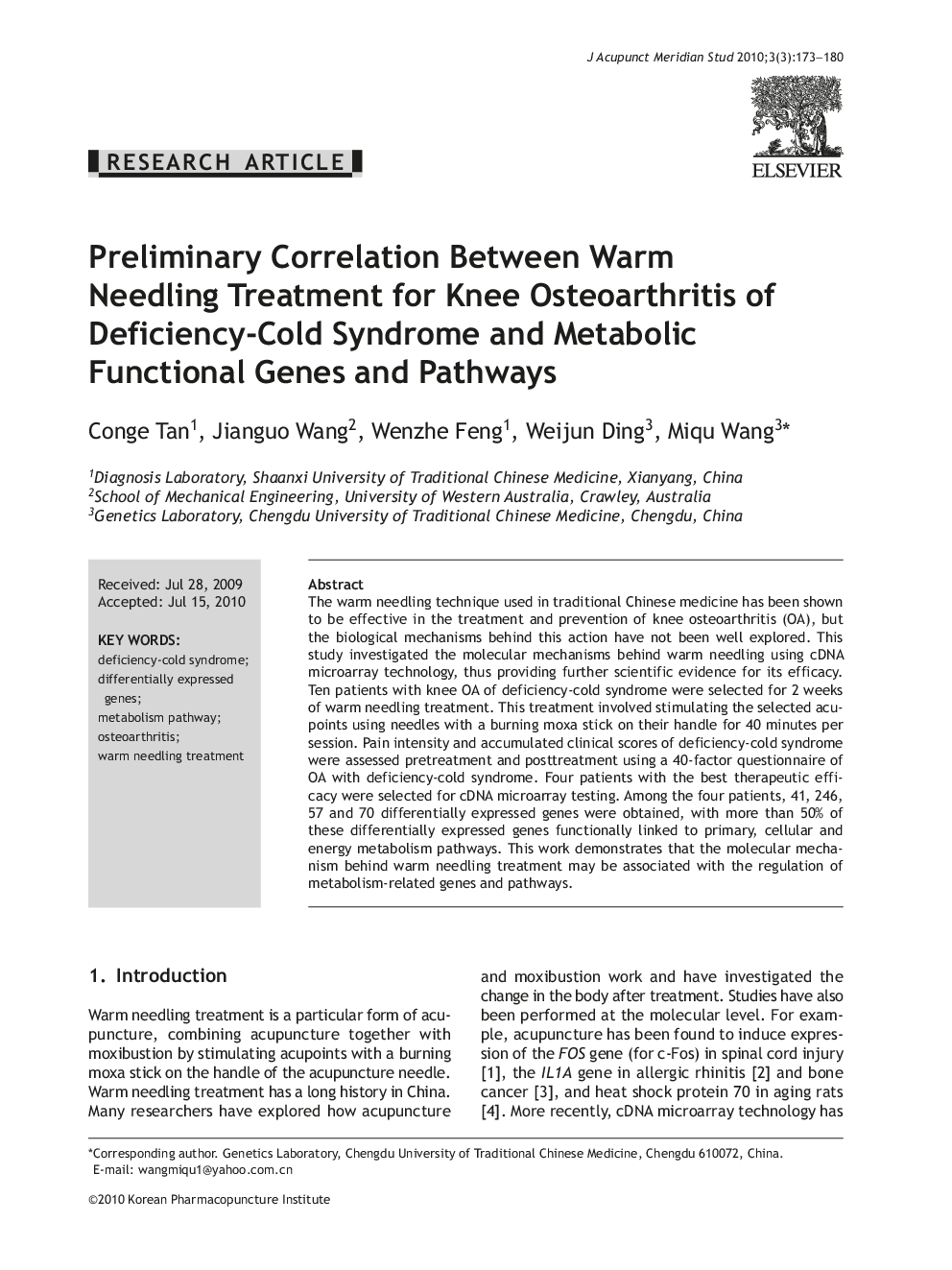| Article ID | Journal | Published Year | Pages | File Type |
|---|---|---|---|---|
| 3098865 | Journal of Acupuncture and Meridian Studies | 2010 | 8 Pages |
The warm needling technique used in traditional Chinese medicine has been shown to be effective in the treatment and prevention of knee osteoarthritis (OA), but the biological mechanisms behind this action have not been well explored. This study investigated the molecular mechanisms behind warm needling using cDNA microarray technology, thus providing further scientific evidence for its efficacy. Ten patients with knee OA of deficiency-cold syndrome were selected for 2 weeks of warm needling treatment. This treatment involved stimulating the selected acupoints using needles with a burning moxa stick on their handle for 40 minutes per session. Pain intensity and accumulated clinical scores of deficiency-cold syndrome were assessed pretreatment and posttreatment using a 40-factor questionnaire of OA with deficiency-cold syndrome. Four patients with the best therapeutic efficacy were selected for cDNA microarray testing. Among the four patients, 41, 246, 57 and 70 differentially expressed genes were obtained, with more than 50% of these differentially expressed genes functionally linked to primary, cellular and energy metabolism pathways. This work demonstrates that the molecular mechanism behind warm needling treatment may be associated with the regulation of metabolism-related genes and pathways.
